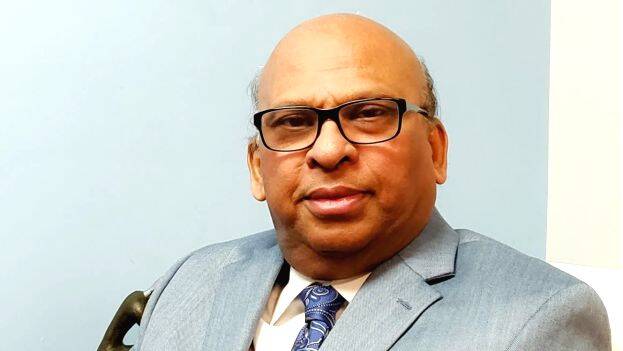

The Indian constitution was envisioned by leaders like Jawaharlal Nehru and drafted by a committee headed by B R Ambedkar. Both of them were of the opinion that a uniform civil code was a necessity for the country to move forward socially and culturally. Instead of imposing a radical change in customs and traditions all of a sudden, they included the concept among the guiding principles of the Constitution (Article 44) since they found India too young an independent nation after a rather long period of foreign invasion and administration. The concept of those who drafted the constitution was that family laws should be unified to ensure the equality and equal justice envisioned by the nation. Seventy-five years after the country's independence, no government and no party has yet come forward to prepare a single draft bill to implement a uniform civil code.
According to the constitution, the legal system of the country has two variants. There are two types of codes, the Criminal Code, which determines the punishment for crimes, and the Civil Code, which deals with personal and family matters. In 1860, the British introduced the Common Criminal Law. The British implemented this law in such a way as to establish that everyone is equal before the Penal Code regardless of caste, religion and gender.
But at that time caste and religious customs were allowed to flourish in family matters like marriage, divorce, inheritance, right of dowry etc. As years went by, many of the caste and religious practices were found to be undesirable for a civilized society and with the constant intervention of reformers and rulers many customs were banned by the law itself. Untouchability is an example of this.
Practising or displaying untouchability is now a criminal offence. Still, many other civil laws continue to perpetuate gender discrimination and inequality. In the Christian tradition, a married girl cannot claim the legacy on the property after her father's death while a boy can. In Muslim tradition, the daughter gets only half of what the son gets. Some of these discriminations exist also among Hindu joint families and tribes. A civilized society needs a civil law that treats individuals equally, regardless of gender. As much as a just cause regarding inherited wealth, it is a move towards gender equality too.
The world today is changing rapidly and shrinking even faster due to the proliferation of technologies. The new generation is entering the ever-growing world of technology. It is never justifiable for vested interests to keep them in the dark on account of outdated religious precepts and scriptures.
A uniform civil code should be implemented to maintain civil equality by transcending religion and personal laws, including those of marriage, divorce, adoption, inheritance and succession, which are currently implemented on the basis of religious dictates.
Knowing that uniform law will be necessary for the progress of the country in the future, the framers of the Constitution had stated that the government should try to ensure a civil code for the people of the country as one of the directives in Article 44. More than 75 years after the country's independence, it still hasn't materialized. Those who ruled the country consciously turned a blind eye to this constitutional directive.
Discriminations in family matters based on religion in the country have come before the law courts and the courts have resolved those cases legally. The Shabanab case and the triple talaq case of 2017, which is the basis of the Supreme Court ruling that the husband should pay maintenance to his wife, are incidents worth mentioning.
Similarly, Mary Roy, a Malayali, fought a legal battle for a quarter of a century and won (1986) the equal rights ruling which led to a revolutionary change in the Christian society. The country is still reeling from the Rajiv Gandhi government's attempt to overturn the Supreme Court's ruling in the Shabana case.
Laws are, and should be, subject to revision from time to time. Discriminatory laws of religion, caste and gender, which do not respect human dignity, are not suitable for any civilized society. The constitution and rule of law should guide modern society. The implementation of the Uniform Civil Code will reduce the unnecessary workload of the courts in the country. Judicial systems will become more rational and efficient. Litigation will become simpler and more transparent. Unnecessary waiting for justice will be avoided. The country will become more modern, civilized and progressive. The country is already growing at par with or even beyond developed nations in terms of GDP, digital sector, space sector, financial sector etc. The time has come to eliminate the maladies holding India back as it climbs the ladder to become one of the world's superpowers.

* (Writer is former President of FOKANA and Chairman of NAMAM (USA))